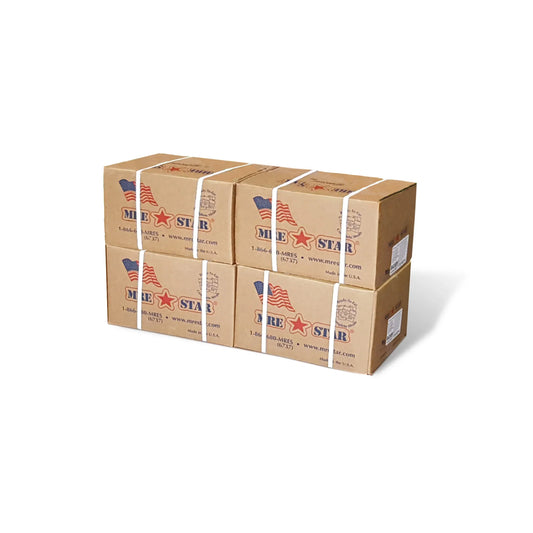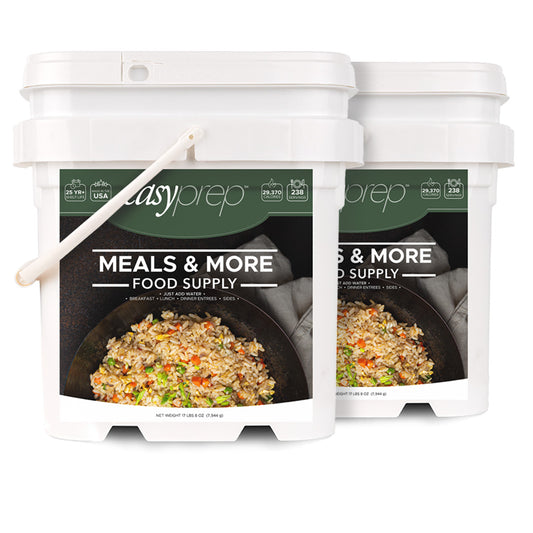How to Pluck and Dress a Chicken
We’ve talked previously about caring for chickens on a homestead. But most people aren’t raising chickens just as pets - they’re raising them to eat! So, what is the best way to kill, pluck and prepare a chicken? Below, we’ve prepared some instructions on how you can do that. Take a look at the instructions and be sure to add your tips and tricks in the comment section. We’d love to hear more from you!
Catching the Chicken
If you’re raising chickens, this is probably already a skill that you possess. If this is your first time catching chickens, the easiest time to catch the chicken is when it’s on the roost. Running around and trying to catch them can upset the flock. One tip to remember is that chickens can’t look one way and run the other. Try to get them in a corner so that they only have one or two directions they can move. Then pounce. If you have trouble, just keep trying. It’s good cardio exercise right?
Meeting Their Maker
Don’t torture the chicken. Be respectful and quick to not draw the process out. There are two methods for killing a chicken: The first is to simply lay the chicken on a chopping block and cut the head off quickly. This can be bloody but you’ll know that the chicken is dead. The second method is to wring its neck; it’s a lot less messy. Take the chicken by the legs in one hand and in your other hand, pull down on the neck and then bend the neck upward very quickly. If you did it correctly, you’ll feel a snap and the chicken’s reflexes will kick in and they will start flapping their wings. When you know that the chicken is dead, you can then hang it upside down and drain out some of the blood. Hang the chicken over a bucket and with a sharp knife cut across the jugular being careful not to cut through the back of the neck. This will open up the neck and allow the blood to fill the bucket.
Plucking
The next step is plucking the feathers off the chicken. You obviously don’t want to eat the feathers of the chicken. You could sit and tear out the feathers handful by handful but there is an easier way. It’s called scalding. To scald the bird you’ll need a large cooking pot or broiler that has enough room to submerge the bird in water with some room to spare. Fill the pot with water and heat it to approximately 135 - 140 degrees Fahrenheit. Once your water has reached the temperature, submerge the bird headfirst in the water for 30 - 45 seconds. Swish the bird around to make sure that the water is able to reach all of the follicles of the feathers. You can tell that the feathers have been loosened by pulling a few of the feathers from the tail or wing. If the feathers pull out easily, the bird is ready to be plucked, but if they are still holding tight, submerge the bird for a little longer. Be careful not to overheat the water or leave the birds for too long. This can result in damage to the skin or meat of the chicken. Water temperatures that are too high can cause the fat in the bird’s bottom to tenderize making the next steps of gutting the chicken a little harder. A lot of chicken owners will dunk the chicken in a bucket of ice water right after they pull them out of the pot. This should help the skin from tearing when you begin plucking the feathers. To begin the plucking process, hang the bird upside down. It’s best to begin with the wing feathers and simply pull in a downward motion. Try not to pull too many feathers at a time. If you grab too much you can risk tearing the skin.
Gutting
The first thing you’ll want to do is cut around the vent (or anus) of the chicken. Take a sharp knife and cut around the vent. Be careful to nut cut the intestines. Salmonella bacteria are usually located in the guts and intestines of the bird so you can avoid unnecessary contamination by carefully avoiding a puncture of the intestines. There is a scent gland located in the tail of the chicken that produces a smelly oil and you’ll want to cut that out in a circular motion so you don’t eat that. Your goal is to cut the vent free and disconnecting the connecting membranes so that you can pull all the guts out without ripping the innards open. Notice the fatty scent glands. Those are what you want to get rid of. They'll make the chicken taste bad. Once you’ve cut away the vent, use a butcher knife or sharp clippers to cut the head off the chicken. Now hold the neck and pull the skin tightly. Take your knife and cut a slit from the backbone to the end of the neck. Separate the neck from the windpipe and pull the crop and windpipe completely away from the bird. Be careful not to puncture the crop, especially if the chicken has been eating recently. Cut this section off and then cut the neck off at the backbone. Many people use the neck for soups and broths. Create an opening large enough to put your hand inside the chicken’s body. Insert your hand in a flat position with the top of your fingers pressed upwards against the breastbone of the bird. Carefully scrape the intestines loose from the top and sides of the body cavity. When your fingers can’t go any further, curve them down and scoop out the intestines. Don’t wiggle your fingers or squeeze too much so that you don’t break any intestines or innards open. Pull the intestines out and set them aside. Then go back in and clean up some more. Be sure to remove everything, including the heart, liver and lungs.
Remove the Feet
You can remove the feet by cutting the leg joint. You should just be able to press the knife through the cartilage instead of cutting any bone. In fact, if you are cutting a bone, you’re doing it wrong. Next, remove the “socks” off the chicken by peeling the skin off the foot. If the skin isn’t coming off easily, then put the feet back in the scalder and this will help remove the skin.
Clean and Store
Rinse out the bird and clean off all the guts. You can allow water to flow through the neck of the bird and out the vent. Once you’ve rinsed the bird, you can process it immediately or place it in a Ziploc in the freezer. One gallon bag is usually a large enough size to fit most chickens.
Your Advice
With your knowledge of killing, scalding, plucking and gutting a chicken, you’ll have the best home-grown and tasty chickens around. What advice do you have from your experience? Tell us what tips and tricks you have for others that will help them along the way. Comment below.













